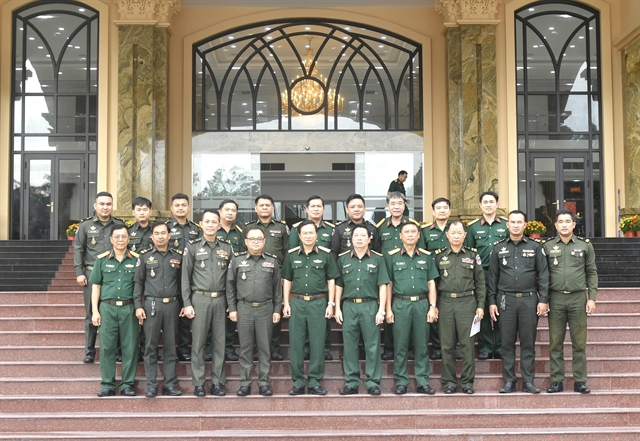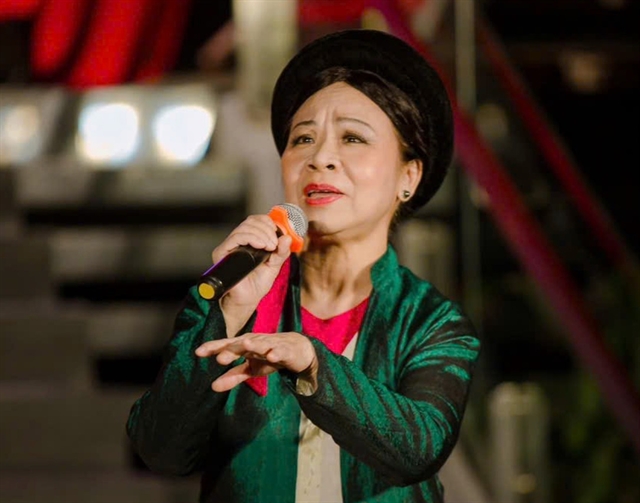 Inner Sanctum
Inner Sanctum
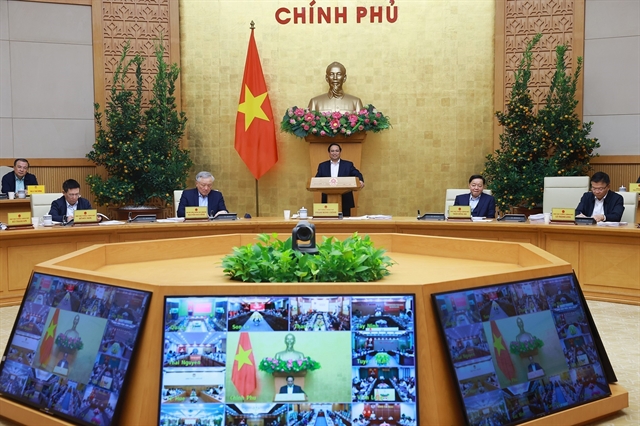
Pianist brothers Lưu Hồng Quang and Lưu Đức Anh will perform a duet tonight at the Việt Nam National Academy of Music (VNAM).
Pianist brothers Lưu Hồng Quang and Lưu Đức Anh will perform a duet on January 5 at the Việt Nam National Academy of Music (VNAM).
Both are international award-winners, including first prizes of the Godowsky Leopold Piano and the Stockholm International Piano Competition.
Quang, 30, works at the Australia Academy of Music and Performing Arts whilst his 26-year-old brother Anh teaches at VNAM.
Nguyễn Bình interviews the two pianists about their first duet.
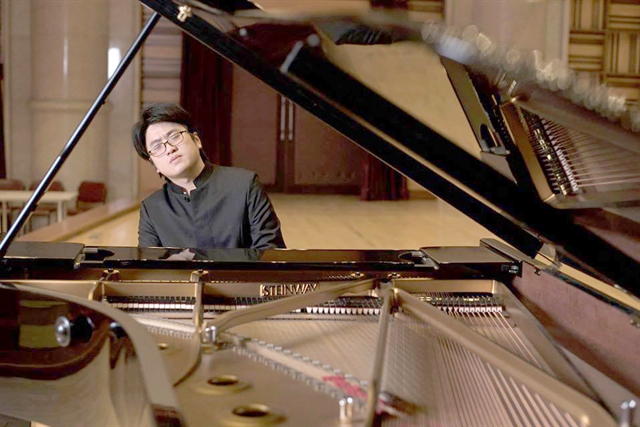
|
| PASSION: Pianist Lưu Đức Anh. |
Could you tell something about your first duet performance (on January 5)?
Lưu Đức Anh: Actually, we played together at a small concert in France in 2015. After each of our recitals we performed a duet to give the audience a bonus. Through that performance, I thought we got along well while playing a duet. We have the same musical taste.
The duet performance is not only meaningful for us but also for our family. This is also an opportunity for us to respond to our fans who always love and support us.
Both our family and the audience want to see us perform a duet.
Lưu Hồng Quang: We also have memories performing together abroad when we were students. This time is a milestone for both of us to perform together on stage in Việt Nam.
Why have you chosen to perform Beethoven’s Symphony No 9?
Lưu Đức Anh: The year 2020 marks the 250th birth anniversary of musical genius Beethoven (1770 - 2020).
We want to take advantage of this occasion and tried to arrange time to perform duet to celebrate.
Beethoven has a lot of famous works but if you had to choose one that represents Beethoven, then everyone would choose Symphony No 9.
Lưu Hồng Quang: We are developing our careers in two different ways. We are excited and pleased to play the masterpiece to contribute to the genius musician Beethoven's 250th birthday celebration.
We will play the Hungarian Franz Liszt's version on two pianos.
The original piece is for an orchestra with vocals. Is it a big challenge to play it with two pianos?
Lưu Đức Anh: The original version is for the orchestra and choir. It is not for piano. The piece is usually performed with large orchestra and choir.
Beethoven's symphonies are very popular. There are many transcriptions, for example for one or two pianos or four-hand pianos and others.
The transcripts for a piano solo and two pianos by Liszt are the most successful. The version for two pianos is the most standard. Liszt’s teacher Carl Czemy was a student of Beethoven and Liszt was impacted by Beethoven in his composition.
We don't have much time to practise together. Each one of us needs to have good practice so we don't have much time to do it together.
This will also be the first time we perform Symphony No 9. I think possibly it is the first time this version is performed in Việt Nam. It will be great for us to play the masterpiece. If the concert is successful we will plan to play more duets in the future.
Lưu Hồng Quang: Performing Beethoven's Symphony No 9 is a challenge for any pianist, not only for us. The two pianos will replace both the orchestra and the choir to perform the symphony.
Plus, playing this piece requires a profound understanding of the orchestra. Both of us have learnt this piece. We have also discussed the idea and finger speed.
What is different between playing two pianos and playing a four-hand piano?
Lưu Đức Anh: Playing a piano with four hands is more limited. Playing a four-hand piano is not as effective as playing two pianos.
With its many possibilities the piano is like an orchestra. When playing two pianos it's like playing with two small orchestras. In my opinion, the version with two pianos can express the spirit of the symphony.
I prefer the version for two pianos because each of us will be free playing with our own piano.
If we play the four-hand piano we will have half a piano for each. It doesn't suit the big musical works like this masterpiece.
What kind of pianist do you want to become?
Lưu Đức Anh: I think I'm lucky because I have learned a lot from good teachers during my studies. My first teacher was my father. He is veteran and has good teaching experience.
In the beginning, he helped me study piano with standard lessons.
After that I studied with Professor and People's Teacher Trần Thu Hà, former director of VNAM for more than ten years. I have also studied with People's Artist Đặng Thái Sơn who was the first Asian to win the Gold Medal at the 10th International Chopin Piano Competition in 1980.
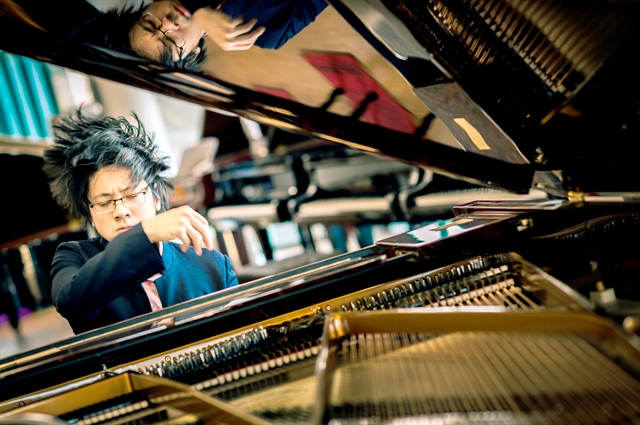
|
| FAST FINGERS: Pianist Lưu Hồng Quang. Photos courtesy of the artist |
When I studied in Belgium and Sweden I also had enthusiastic teachers. They encouraged and gave me opportunities.
I have learned a lot from them, not only musical knowledge but also teaching experience.
It is difficult to say which artist I like the most because I have had different demands in each period of my studies.
I find that it is difficult to become a good teacher. I think a good teacher needs to know how to inspire their student and not everyone can do that.
Lưu Hồng Quang: Perhaps every artist has good points that both of us can follow. But the most important is after learning from the veterans we need to find our own path to develop our careers.
Both of you are working as teachers and performers. Which job do you prefer?
Lưu Đức Anh: When I began to study I thought I loved music. But I didn't. I just liked the moment of performing and being praised. I also liked winning prizes. That's not enough.
I think a music lover must love everything about music such as teaching, recording, concert production and more.
I will not perform and compete only. I want to organise concerts for myself, my colleagues and younger artists.
I still prefer performing. But it also makes me exhausted. I feel more relaxed when I'm teaching, although it is always busy. At this time I want to have more performances to get experience.
Lưu Hồng Quang: The two jobs support each other. I prioritise performing and practising.
This year I will perform at many concerts to celebrate Beethoven's 250th birthday. I also have Beethoven recitals in Germany and performances with orchestras in Australia and France. VNS



